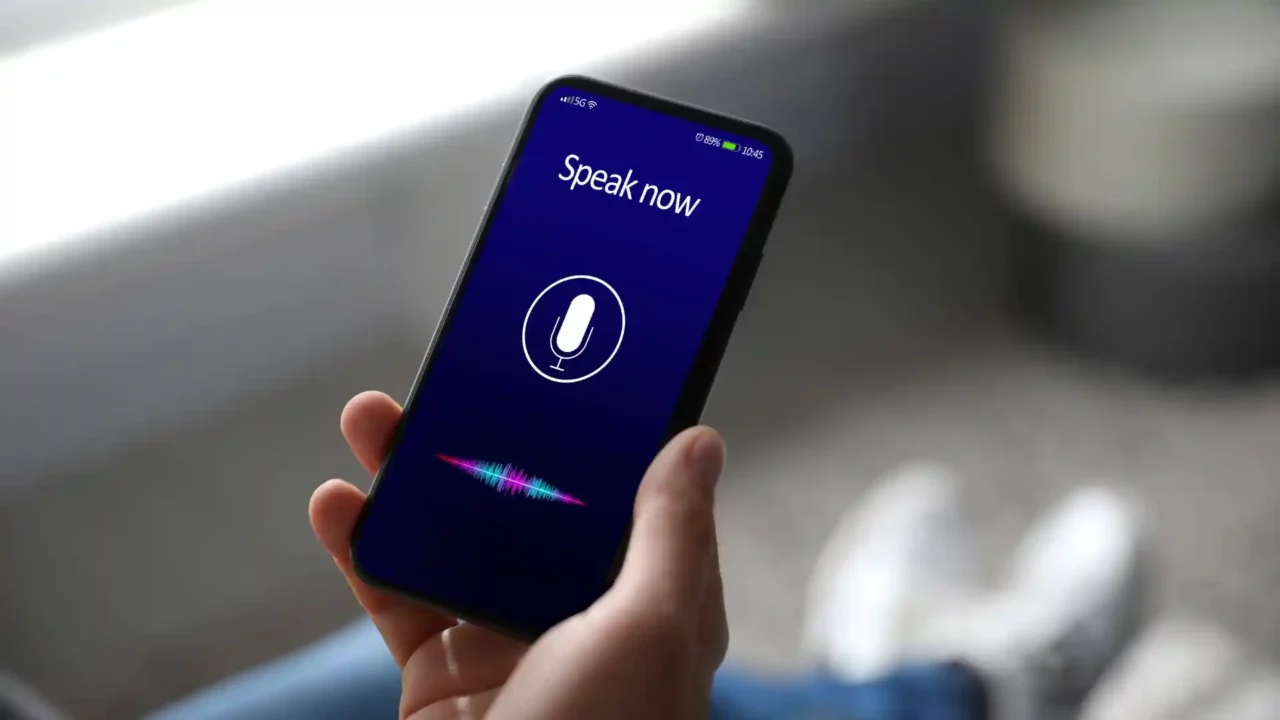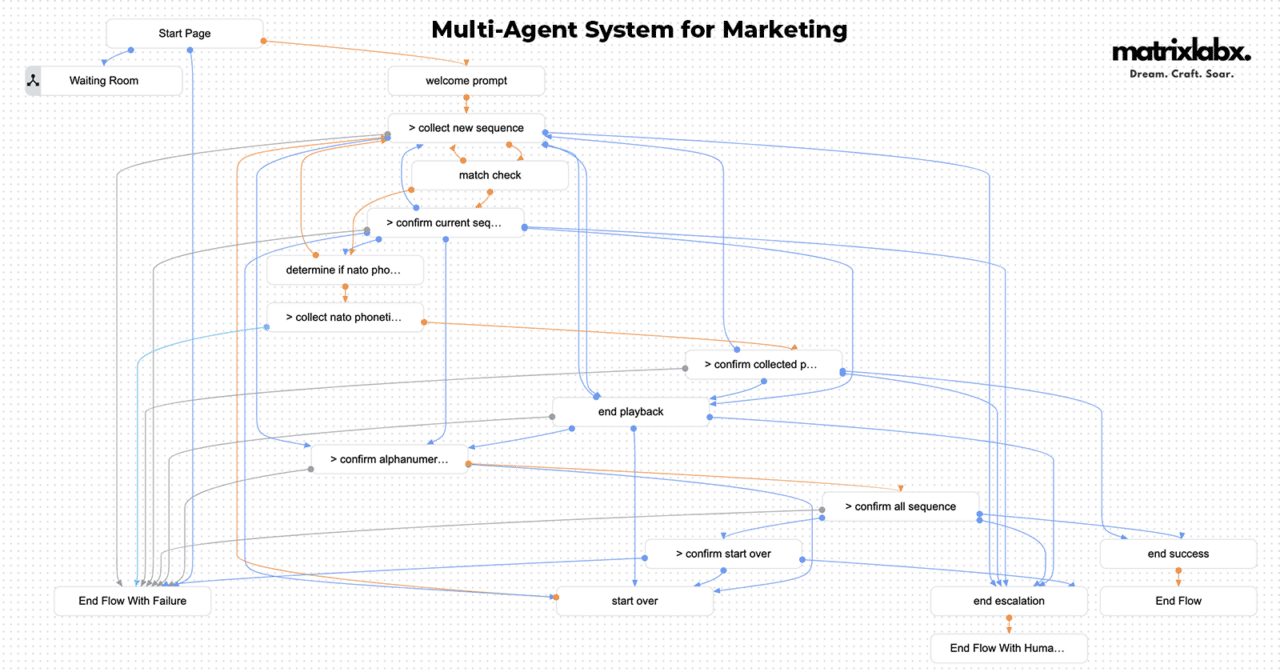Conversational AI for Healthcare Customer Service
Introduction to Conversational AI for Healthcare Customer Service.
As technology evolves, Conversational AI is becoming a more common solution for customer service across numerous industries, including healthcare. When patients have a question or concern, they want to know they will receive prompt and valuable assistance.
Conversational AI takes customer service to a new level by offering 24/7 real-time responses to inquiries. With countless benefits, this technology is set to transform the healthcare industry. Watch out for the digital co-worker who can handle all of your social media with AI in healthcare and AI agentic systems by MartixLabX.
By leveraging natural language processing and machine learning, Conversational AI systems can provide personalized answers to patients with a degree of accuracy that previously required a human counterpart. Plus, with seamless integration into existing communication channels, Conversational AI systems make it easier for patients to access the help they need when they need it.
What is conversational AI?

In today’s technological landscape, the term ‘conversational AI’ is often used but not always clearly understood. In other words, conversational AI refers to artificial intelligence systems that can engage in human-like conversation through voice or text interactions.
By leveraging natural language processing, machine learning, and other advanced technologies, conversational AI systems can understand and respond to human queries and prompts naturally and intuitively.
From personal assistants like Siri and Alexa to chatbots on customer service websites, conversational AI is changing how we communicate with technology, making it more efficient and effortless.
AI-Agentic System for Content Marketing
AI-Agentic systems like OrchestraAI for content marketing are advanced, autonomous technologies designed to execute content strategies with minimal human intervention.

How is conversational AI being used in healthcare customer service?
Conversational AI is revolutionizing the healthcare industry by providing patients with a more personalized, efficient, and accessible customer service experience.
With the rise of virtual care, many patients are turning to telehealth solutions for their medical needs. Hospitals and clinics can improve patient engagement and satisfaction by implementing conversational AI.
For example, chatbots can guide patients through various administrative tasks, such as scheduling appointments, obtaining lab results, or refilling prescriptions.
Furthermore, conversational AI can help healthcare providers by automating back-office operations, such as handling insurance claims, reducing waiting times, and providing faster diagnoses.
Ultimately, conversational AI transforms customer service in the healthcare industry, enabling patients to interact with providers more intuitively and seamlessly.
Benefits of using AI in healthcare customer service

Conversational AI has revolutionized the way healthcare customer service is delivered. With its natural language processing and machine learning capabilities, conversational AI can handle routine inquiries and provide personalized responses to complex medical questions.
This technology can also triage patients and make appointments, freeing staff to focus on more pressing tasks. Additionally, it can provide patients with round-the-clock, real-time support, improving their overall experience and satisfaction.
Therefore, by incorporating conversational AI in healthcare customer service, healthcare providers can enhance the quality of care they provide while optimizing efficiency.
An Overview of Conversational AI in Healthcare Customer Service
Conversational AI has become a game-changer in various industries, including healthcare. Healthcare customer service, in particular, has been transformed by conversational AI, offering a more personalized and efficient patient experience.
Using chatbots and voice assistants, patients can now access information about their health without calling the customer service team or visiting the hospital.
With conversational AI, patients can schedule appointments, get reminders, and receive medical advice through a simple conversation, bringing a new level of convenience to the healthcare industry.
Additionally, conversational AI in customer service has also improved the response time of healthcare providers, ensuring that patients receive the attention they need promptly, which is especially crucial during emergencies.
Overall, conversational AI technology is revolutionizing healthcare customer service, paving the way for a more patient-centric system.
The Benefits of Adopting Chatbots and Virtual Assistants in Healthcare
The world of healthcare is constantly evolving, and one of the latest innovations is the adoption of chatbots and virtual assistants.
These technologies offer a range of benefits that can improve the patient experience and optimize care delivery.
For instance, chatbots can provide patients instantaneous responses to their queries, reducing the need for human staff to spend time on repetitive tasks. Virtual assistants, on the other hand, can help streamline administrative tasks such as scheduling appointments and managing patient data.
Moreover, chatbots and virtual assistants can operate around the clock, ensuring patients can access support anytime. With their ability to enhance efficiency and accessibility, it’s no wonder that healthcare providers and patients are increasingly embracing chatbots and virtual assistants.
How Conversational AI Use cases
One of the most important early steps when designing software or other systems is identifying the use cases.
Use cases are descriptions of how end-users will utilize the system being built. It can be incredibly insightful to imagine how different types of people might engage with the software or other tools and then design accordingly. Developers and designers can create more intuitive and user-friendly systems by considering use cases. This can lead to greater user satisfaction, translating to stronger adoption rates and a more successful product overall.
Of course, use cases aren’t the only considerations in software or system design, but they are a crucial piece of the puzzle!
Enhance the Patient Experience
As technology continues to transform various aspects of our lives, the healthcare sector hasn’t been left behind. Conversational AI has slowly gained momentum, and stakeholders are starting to recognize the benefits it can bring to the industry.
One area where it shows great potential is in enhancing the patient experience. Conversational AI can assist healthcare providers in various ways, such as answering patient inquiries, reminding them to take their medication, and even providing personalized health tips based on their medical history.
By doing so, the technology can help patients feel more at ease and reduce their anxiety levels during their healthcare journey. As patients expect more convenience and personalized care, conversational AI can help healthcare providers meet their evolving needs.
OrchestraAI Marketing Platform – WATCH
OrchestraAI utilizes a compound AI agent architecture as an AI Agentic Platform. This architecture seamlessly integrates multiple specialized AI agents into a cohesive system, enabling it to tackle complex, multifaceted marketing tasks.

Examples of Health Care Organizations Leveraging Chatbots and Virtual Assistants
With technological advancements, healthcare organizations leverage chatbots and virtual assistants to improve patient care and streamline administrative tasks.
These virtual tools provide patients with 24/7 access to basic health information and aid them in scheduling appointments, renewing prescriptions, and receiving test results. For instance, Mayo Clinic has developed a chatbot that helps users identify symptoms and recommend further action.
Meanwhile, Kaiser Permanente’s virtual assistant, ‘Kate,’ assists patients in navigating their healthcare benefits and connects them with relevant medical professionals.
By incorporating chatbots and virtual assistants, healthcare organizations can optimize their operations while providing efficient and personalized patient care.
The Key Challenges to Overcome When Integrating Conversational AI into Healthcare Customer Service
The healthcare industry constantly evolves, and conversational AI has become an increasingly essential tool for delivering exceptional customer service.
Although this technology brings immense benefits, integrating conversational AI into healthcare customer service has challenges. One significant challenge is ensuring the AI system recognizes professionals’ complex medical terminology.
Another critical aspect is maintaining patient privacy and confidentiality, which is non-negotiable in the healthcare industry. Additionally, patients experience a learning curve as they adjust to interacting with a machine rather than a person.
By addressing these challenges, the healthcare industry can reap the benefits of this revolutionary technology while prioritizing patients’ needs and ensuring they receive quality care.
Best Practices for Designing a Successful Healthcare Customer Service Program Utilizing Conversational AI
Effective customer service has become critical in ensuring patient satisfaction and loyalty as healthcare evolves. Incorporating conversational AI into your healthcare customer service program can provide significant benefits, including improved response times, 24/7 availability, and personalized assistance.
However, designing a successful program requires careful planning and execution. Understanding your patient’s unique needs and preferences, choosing the right AI technology, and developing a comprehensive training program are critical components in creating a program that engages and supports your patients while improving operational efficiency.
By implementing best practices and leveraging the power of conversational AI, healthcare providers can create a customer service program that delivers exceptional patient experiences and improved outcomes.
Appointment scheduling and management
In this fast-paced world, managing appointments has become a tedious task. With appointments piling up, keeping track of schedules and maintaining order can often be stressful and time-consuming. However, with the advent of technology, appointment scheduling and management have been made easier.
You can easily book appointments with your preferred service provider with just a few clicks. Various scheduling and management tools have been developed that allow businesses to track their bookings, cancellations, and rescheduling.
This helps minimize confusion and streamline the process. Appointment books and sticky notes are now passé; it’s time to embrace the technological wave and make your appointment management efficient and hassle-free!
Orchestrate interactions that provide specific forms of help across the full customer journey autonomously. With three sets: New Neldentifyeds, Aid Self-Learning, and Foster Connection. Learn More.
Medication management and adherence
For those living with chronic conditions, medication management and adherence can be a challenging aspect of their daily routine. Keeping track of which medications to take and when while also considering the various dosages and potential side effects can be overwhelming.
Despite these hurdles, it’s crucial to maintain proper medication adherence to achieve optimal health outcomes.
By staying organized and consistent with medication routines, patients can prevent medication errors, reduce healthcare costs, and enjoy improved quality of life. Various tools, such as pill organizers, smartphone apps, and prescription refill reminders, support medication management.
With the right tools, resources, and support, medication adherence can become manageable, empowering patients to take control of their health.
Mental health support and counseling
Mental health support and counseling are essential in improving mental and physical health. Seeking professional advice and assistance can be a life-changing decision. Counselors and therapists offer a safe space to share thoughts, feelings, and experiences without being judged.
They use evidence-based techniques tailored according to the needs of each individual. Support and counseling can help individuals cope with difficult emotions, stress, depression, anxiety, and other mental health conditions.
It allows people to better understand themselves, develop coping mechanisms, and improve their relationships with others. Being proactive about mental health and seeking support is vital for overall well-being.
Patient engagement and post-treatment care
Patient engagement is a critical component of post-treatment care. After all, the road to recovery doesn’t end when the treatment does.
Engaged patients are likelier to stick to their recovery plans, communicate effectively with their providers, and play an active role in their care, leading to better overall outcomes. However, engaging with patients can be challenging. Some may feel overwhelmed by the experience, while others may feel like they don’t have a say in their care.
Providers must find ways to bridge this gap and create a more collaborative, patient-centered approach to post-treatment care. By doing so, they can help patients take ownership of their health and improve their chances of a successful recovery.
Patient insights
As healthcare continues to evolve, it is becoming increasingly important to understand patients’ perspectives and experiences. Patient insights can provide invaluable information to help healthcare providers improve patient care and outcomes.
By listening to patients and understanding their unique needs and concerns, healthcare professionals can tailor their approach to treatment and ultimately improve the quality of care patients receive.
Patient insights can also help healthcare providers identify areas for improvement and innovation, ultimately driving positive change within the healthcare industry. They are essential for providers looking to improve patient care and positively impact their communities.
Automation of administrative tasks
Technology has revolutionized how we work, and automation of administrative tasks is no exception. With the help of innovative software, businesses can now streamline their operations and enhance their productivity by automating routine tasks.
The benefits of automation include reducing errors, saving time, and increasing efficiency. By eliminating manual tasks such as data entry, filing, and organizing paperwork, employees can focus on high-level tasks requiring human intervention.
Moreover, automation ensures that processes are standardized and consistent, which can lead to improved quality and customer satisfaction. Automation has become essential for organizational success in a fast-paced business environment.
Public health information dissemination
With so many sources of information available today, it can be difficult to know which ones to trust. This is especially true when it comes to public health information.
People need to know what they can do to stay healthy and avoid spreading illnesses, but they also need to know that the information they get is accurate and up-to-date. That’s where public health information dissemination comes in.
Public health officials can help protect the health and well-being of individuals and communities by working to get the right information out to the public in a timely and reliable manner. Whether through social media, news outlets, or other channels, effective dissemination of public health information is essential for promoting good health and preventing the spread of disease.

Implementation considerations
Various considerations need to be taken into account regarding implementation. For starters, the project managers need to determine the project’s goals and objectives and how they align with the overall business strategy.
This involves assessing the available resources, defining the scope, and developing a project plan. The team responsible for implementation must have the skills and experience to take on the project tasks.
Additionally, communication channels should be established to ensure transparency and prompt escalation of any issues that may arise. Finally, monitoring and evaluation should be ongoing throughout the implementation process to ensure the project stays on track and meets its intended goals. All of these factors contribute to a successful implementation process.
Choosing the right conversational AI platform
The modern world has made it possible to integrate artificial intelligence into our daily lives, and conversational AI platforms have become a popular tool for businesses. However, choosing the right platform can be a daunting task.
It’s vital to consider factors such as the business size, the type of customer interactions, and the technical capabilities required to implement the platform. Selecting a conversational AI platform can be the difference between providing a seamless customer experience and a frustrating one.
Businesses need to weigh the pros and cons of different platforms before making the final decision. Regardless of the choice, investing in a high-quality conversational AI platform means providing top-notch customer service and increased customer satisfaction.
Training the conversational AI system

Conversational AI systems are revolutionizing the way we interact with technology. These systems can understand human language, learn from it, and provide personalized recommendations to users.
However, conversational AI systems require extensive training to achieve this level of intelligence. This involves analyzing massive datasets, identifying patterns, and learning to respond appropriately to users’ queries.
The training process can be tedious, but ensuring the system can accurately understand and respond to various user inputs is necessary. The AI system becomes more refined and sophisticated with each new interaction, offering a seamless user experience.
As technology advances, conversational AI systems will become more common, providing businesses and individuals with the tools to streamline communication and improve overall functionality.
Integrating the conversational AI system with existing healthcare systems and processes
The healthcare industry constantly evolves, with new technologies developed at lightning speeds. One of the most exciting developments in recent years is integrating conversational AI systems into existing healthcare processes.
By leveraging these sophisticated systems, healthcare practitioners can streamline patient care and significantly improve medical outcomes.
These technologies can improve patient experiences by introducing conversational components into the patient-provider interaction, further strengthening the relationship between healthcare providers and patients.
Integrating conversational AI systems is a smart choice for any healthcare organization looking to drive innovation and drastically improve its operations.
Evaluating the performance of the AI system
In the age of constant technological advancements, AI systems have become increasingly prevalent in our daily lives. From Siri to Alexa, these systems are designed to process our commands and solve our queries.
However, evaluating the performance of conversational AI systems is a complex task that requires a keen eye and knowledge of the technology at hand. It involves analyzing and measuring the system’s ability to understand spoken or written natural language, its response time, and the accuracy of its responses.
Additionally, the system’s ability to generate and maintain context throughout the conversation is crucial in determining its effectiveness. Evaluating an AI system’s performance is essential to ensuring that the technology can continue to evolve and flourish to meet society’s needs.
Challenges and opportunities
We are often faced with challenges and opportunities in life. These can take many forms, from personal struggles to professional feats.
How we approach these challenges and opportunities can determine our success in life. For some, challenges seem impossible, while others see them as a chance to grow and learn. Similarly, opportunities can be seen as a lucky break or a chance to seize the day and soar.
Ultimately, it is up to us to decide whether we will allow challenges to defeat or push us forward, take advantage of the opportunities presented, or let them slip away.
Challenges, such as ensuring patient privacy and security and addressing ethical concerns
Numerous challenges exist in today’s healthcare industry, from ensuring patient privacy and security to addressing ethical concerns.
While technological advancements have made it easier to access and share patient data, they have also heightened the risk of data breaches and cyber-attacks. As a result, healthcare providers are under increasing pressure to implement robust security measures to protect patient information.
At the same time, ethical concerns about issues such as genetic testing and end-of-life care remain at the forefront of public debate. Addressing these complex challenges demands careful consideration and a commitment to finding solutions that prioritize patient safety and well-being.
Opportunities, such as improving access to healthcare, reducing costs, and personalizing the patient experience
As we continue to evolve technologically, we’re seeing more and more opportunities to improve healthcare for individuals worldwide.
Through advances in digital tools and technological integration, we can work towards reducing healthcare expenses and improving access to necessary treatments and expertise.
Furthermore, personalizing the patient experience through tailored treatments and more targeted recommendations can lead to better overall outcomes, benefiting patients and healthcare providers. There’s never been a better time to invest in innovative solutions that improve healthcare for everyone.
Conclusion
As healthcare continues to advance, it’s no surprise that customer service is following suit.
With the implementation of conversational AI, healthcare providers can now offer an even higher level of service to their patients. This cutting-edge technology allows for personalized conversations that can provide users with a wide range of services, such as answering their medical questions or booking appointments, all while reducing the workload for customer service representatives.
By offering an effortless and efficient patient solution, conversational AI is revolutionizing the healthcare industry and will become a staple in customer service for years.
The future of conversational AI in healthcare customer service
Over the years, customer service in healthcare has been revolutionized with the incorporation of Artificial Intelligence. However, the future of conversational AI in healthcare customer service is looking bright and exciting.
With the increasing technological advancements, we can now create more advanced conversational agents to handle more complex tasks and communicate with customers more effectively. These conversational AI agents can provide prompt and personalized assistance to customers, ensuring that their healthcare needs are met promptly and efficiently.
The future of healthcare customer service will be even more dynamic as conversational AI agents evolve and play an essential role in providing excellent customer service.
With the implementation of conversational AI in healthcare customer service, organizations have provided enhanced customer experiences by providing quick and accurate responses.
With the help of AI-driven virtual assistants, it is now much easier for customers to find the right answers to their questions. Healthcare organizations can benefit from improved patient engagement, automated workflow management, and cost savings due to improved efficiencies. These benefits have convinced many healthcare providers to invest in conversational AI solutions.
The key challenges regarding conversational AI adoption remain, such as confusion over which AI system is best for a business’s needs and security concerns before allowing access.
Despite these challenges, conversational AI ensures efficient and cost-effective business operations. The time has come to take advantage of digital disruption and reap its rewards! Why not get started today? With our powerful sales tool, you can boost conversions and sales quickly!

